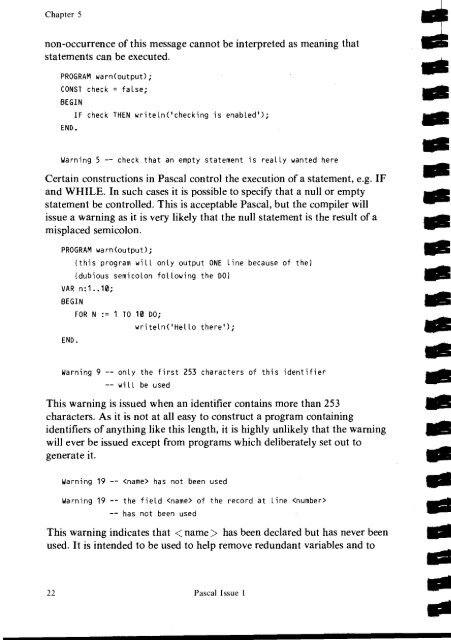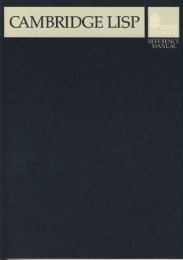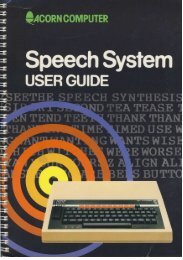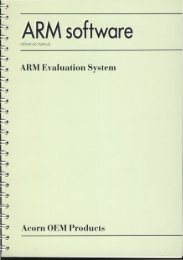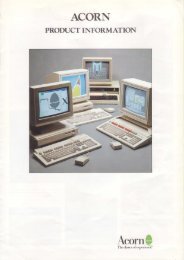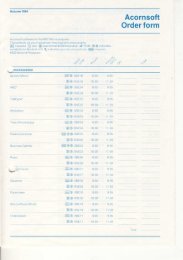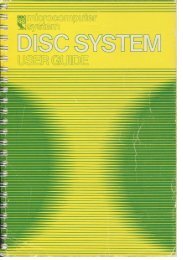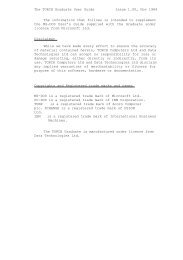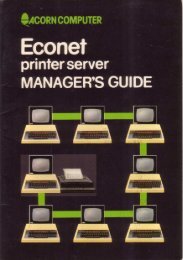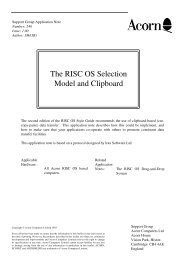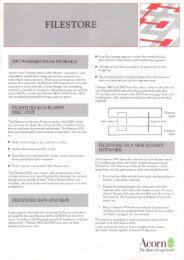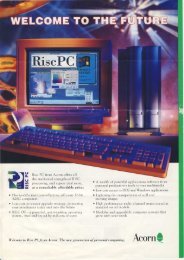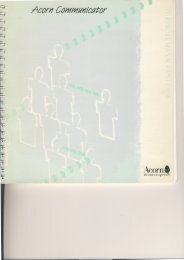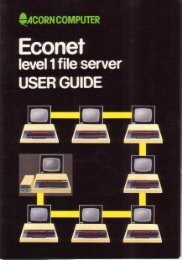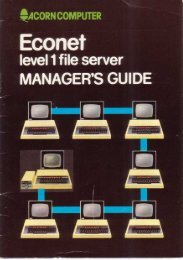ISO Pascal reference manual
ISO Pascal reference manual
ISO Pascal reference manual
Create successful ePaper yourself
Turn your PDF publications into a flip-book with our unique Google optimized e-Paper software.
Chapter 5<br />
non-occurrence of this message cannot be interpreted as meaning that<br />
statements can be executed.<br />
PROGRAM warn(output);<br />
CONST check = false;<br />
BEGIN<br />
END.<br />
IF check THEN writeln('checking is enabled');<br />
Warning 5 -- check that an empty statement is really wanted here<br />
Certain constructions in <strong>Pascal</strong> control the execution of a statement, e.g. IF<br />
and WHILE. In such cases it is possible to specify that a null or empty<br />
statement be controlled. This is acceptable <strong>Pascal</strong>, but the compiler will<br />
issue a warning as it is very likely that the null statement is the result of a<br />
misplaced semicolon.<br />
PROGRAM warn(output);<br />
[this program will only output ONE Line because of the)<br />
[dubious semicolon following the DO)<br />
VAR n:1..10;<br />
BEGIN<br />
END.<br />
FOR N := 1 TO 10 DO;<br />
writeln('Hello there');<br />
Warning 9 -- only the first 253 characters of this identifier<br />
-- will be used<br />
This warning is issued when an identifier contains more than 253<br />
characters. As it is not at all easy to construct a program containing<br />
identifiers of anything like this length, it is highly unlikely that the warning<br />
will ever be issued except from programs which deliberately set out to<br />
generate it.<br />
Warning 19 -- has not been used<br />
Warning 19 -- the field of the record at line <br />
-- has not been used<br />
This warning indicates that < name > has been declared but has never been<br />
used. It is intended to be used to help remove redundant variables and to<br />
22 <strong>Pascal</strong> Issue 1


